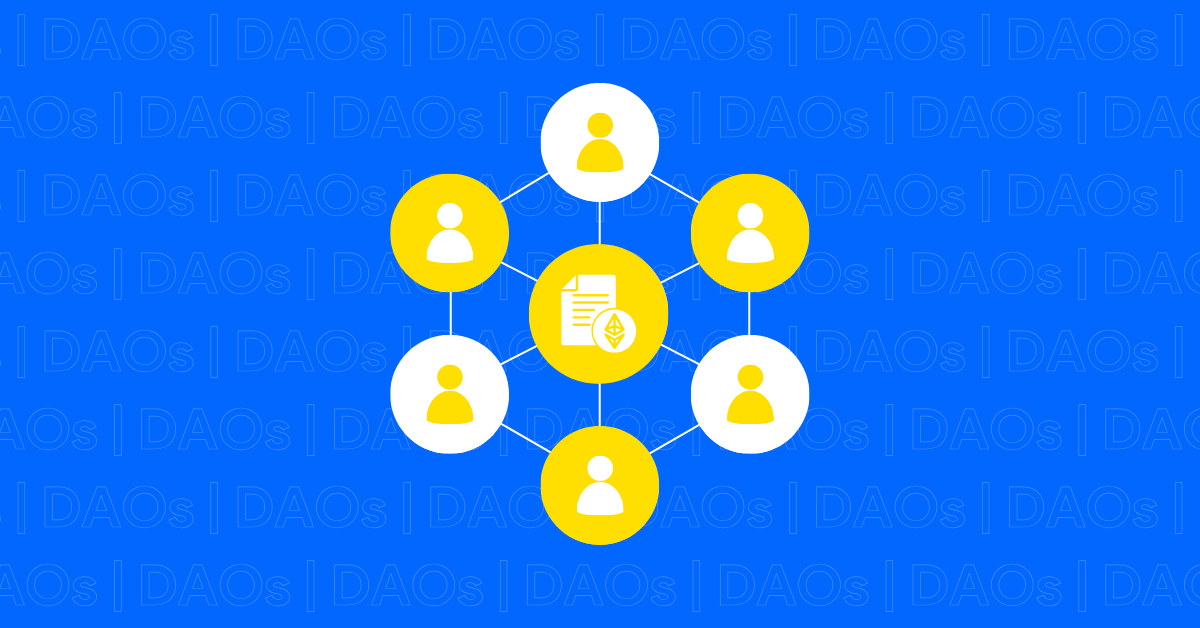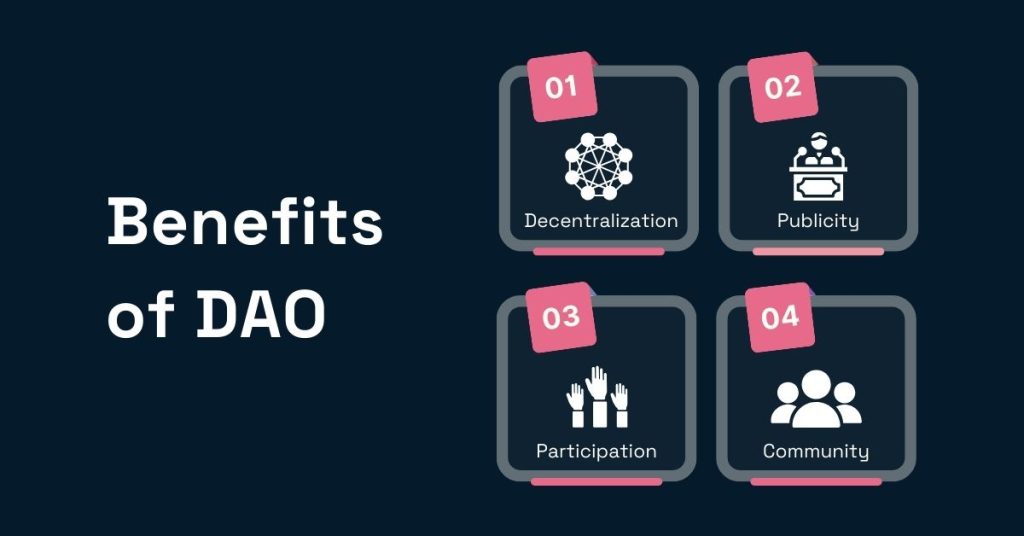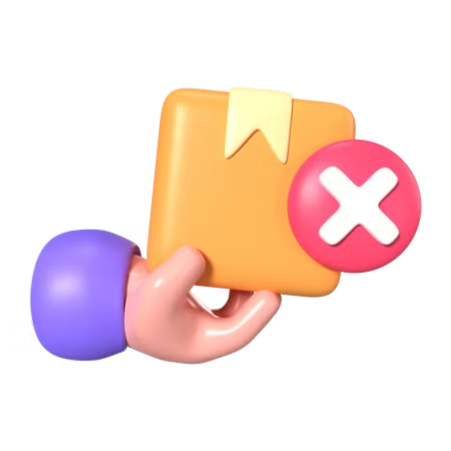An Introduction to DAOs: Are They Worth the Hype?
Reviewed by:

Imagine a way of connecting with other people around the world, without knowing each other. Think of establishing your own rules, and making your own decisions autonomously encoded on a Blockchain in a well-framed organisation? Sounds unreal, right? Well, DAOs are making this real.
A Decentralized Autonomous Organization, DAO, is a growing legal structure.
Within their decentralized structures, individuals from all corners of the globe unite to pursue shared goals. They establish their own rules, make their own decisions, and chart their own course. And they do so without the need for a middle-man.
If you want a future that’s ‘free’, you need to learn about DAOs. In this article, we help you understand the basics, the good, the bad, and how you too can navigate this world. Jump in!
1. Understanding DAOs: Decentralized Autonomous Organizations
DAOs are the modern way of running organizations, and they’re powered by blockchain technology. Here’s a simplified look at what they’re all about.
We all know blockchain is the technology that secures data, making it virtually impossible to change, hack, or tamper with. Well, DAOs work within the secure world of blockchain technology.
Key Takeways
DAO is a system collectively owned by its members, therefore we call it a fully autonomous, community-led and transparent entity with no central authority controlThe information stored cannot be altered by anyone without the group’s permissionSmart Contracts are the backbone of DAO
Imagine you and your friends decide to kick off an online apparel business using the DAO concept. In this setup, none of you has more authority than the others. There’s no boss. Instead, everyone gets to be a leader. An algorithm takes care of all calculations, making your organization fully decentralized. It practically runs itself. Pretty cool, right?
Now, let’s dig into the core objectives of DAOs.
1.1. Objectives of DAO
The concept of DAOs was born in 2016, inspired by the decentralization principles of cryptocurrencies. The primary objectives of DAOs are crystal clear:
- Promote Decentralized Management: DAOs aim to manage entities without the need for a central governing authority. It’s like a digital democracy.
- Empower Collective Decision-Making: They let a group of leaders participate in the decision-making process of an organization. It’s all about teamwork.
- Enhance Transparency and Security: DAOs ensure decisions are made transparently and securely. It’s a bottom-up management approach that fosters trust and efficiency.
With these objectives, DAOs are leading tech-driven advancements, creating a seamless and efficient working environment in the digital age. It’s a revolution worth exploring, wouldn’t you agree?
1.2. How DAOs work?
So, how exactly do DAOs work? As mentioned earlier, DAOs rely on smart contracts, which are essentially logical, self-executing agreements that use blockchain activity to make decisions.
- The rules of DAO are set by the core team of the community through smart contracts. These contracts lay out the foundational framework.
- They are highly verifiable and all the members can understand the protocol easily.
- Once the rules are written on the blockchain, the next step is funding.
- Token issuance is done to bestow governance, where protocol sells tokens to raise funds and fill the DAO treasury.
- The voting process for DAOs is posted on a blockchain with the power of voting in the hands of users holding the tokens. The ones with 100 tokens have more power in voting over the ones with 50 tokens.
- This is to make sure that the users who are more invested in terms of money are incentivized in good faith.
- DAOs have securities which contain tokens that can be issued in exchange for fiat. Members get to vote on how to use the funds.
- Once the funding is done, DAO is ready for deployment.
- Code pushed into production cannot be altered until a consensus is reached through voting.
DAOs are remarkably straightforward once you grasp the basics.
Learning about blockchain is the first step, and you can explore this through our online courses: Click here!
1.3. How Do DAOs govern?
After understanding how DAOs operate, let’s explore some unique governance models along with practical examples:
Constitution DAO: This type allows users to pool resources and collectively own assets using cryptocurrencies, encouraging collaboration among people.
Friends with Benefits DAO: It’s a community of Web 3.0 enthusiasts functioning as a decentralized social networking platform. A governance token grants users access.
Juicebox DAO: This platform assists various projects in raising funds from the public through Ethereum smart contracts. It helps design fundraising pages and create a funding structure.
ENS DAO: Ethereum Name Service DAO is used to issue ENS tokens for registered Ethereum domains.
For a more in-depth look at these models, check out this link: DAO governance models
2. Major Types of DAO
DAOs come in different types, each with its own structure and mode of operation. Let’s dive into the eight main categories:
- Protocol DAOs
These are the common DAOs which use tokens as a voting unit to go through financial changes. Key projects using this technology are Uniswap, Curve and more.
- Operating systems
These are the standalone places which help organizations in creating their DAOs. Orca and Colony come under this category!
- Grants DAOs
These DAOs are like decentralized venture capitalists having communities utilising governance tokens to vote for capital allocation. Some examples include Audius Grants and MolochDAO.
- Investment DAOs
They support capital pooling for different DeFi investments. BitDAO and LAO are some common Investment DAOs.
- Service DAOs
Services like talent scouting and model acquisition for agencies are made easy by these. MetaverseDAO and DaoHaus are some known Service DAOs.
- Media DAOs
They are like decentralized news aggregators which allow transparency and work for the consumer’s benefit. Mirror is one such example!
3. Benefits of DAOs: The Bright Side
DAOs offer a wealth of benefits. Let’s dive into some of the major advantages:

3.1. Decentralization
The decision-making attribute of the organization is purely handled by the collection of individuals rather than a single authority. DAO makes sure to decentralize authority across a larger range of users.
3.2. Participation
By giving decision-making powers to the individuals within the organization, they feel more empowered. Equal participation is ensured by a DAO-run firm.
3.3. Publicity
Votes are cast via blockchain and are available to be viewed by the public. Thus, the user makes sure to act in a way which is unbiased and best for the company’s interest.
3.4. Community
It enables users from all across the world to come together on the same platform and make unanimous decisions. Thus, making the community stronger and more interactive.
4. Pros and Cons of DAOS: Stay Informed
To understand DAOs better, let’s consider the potential pros and cons:
Pros:
- Global Community Collaboration: DAOs bring together users from around the world on a single platform, fostering unity in action.
- Individual Empowerment: Everyone has a voice in critical decision-making, planning, and operation.
- Transparent Voting: Since votes are publicly viewable, token holders act more responsibly in the decision-making process.
- Community Building: Members of DAOs feel empowered to connect with like-minded individuals in a community, creating a strong sense of belonging.
Cons:
- Decision-Making Delays: The decision-making process can take longer due to a large number of voters.
- Security Risks: If DAO security is inadequate, it might be vulnerable to theft of treasury funds.
However, these drawbacks can be mitigated with proper precautions.
5. DAOs in the Real World
Let’s explore some remarkable DAOs in the current era and their features:
Traders Premier League (TPL): A platform for trading enthusiasts to showcase their skills, offering exciting opportunities to trade with top competitors and enhance their trading journey.
Uniswap: A decentralized exchange where users can trade cryptocurrencies without the involvement of third parties.
Lido Finance: A popular liquid staking solution for Proof of Stake-based cryptocurrencies, boasting the largest TVL (Total Value Locked) in the DeFi space at around $13.83 billion.
Aave: A decentralized platform for lending and borrowing, eliminating the need for third-party intermediaries.
Maker DAO: A decentralized organization on the Ethereum blockchain, enabling users to borrow and generate DAI by submitting collateral into a smart contract known as a Collateralized Debt Position (CDP).
To know more about these DAO wonders, you can follow the link: Read here!
Endnote
As the world hurtles towards a decentralized future, DAOs stand ready to reshape the very fabric of our society. Their potential is limitless, their impact profound.
Many experts have predicted that in the years to come, DAOs will not merely exist alongside traditional organizations, they will surpass them. They will become the norm, the standard by which all others are measured. They will become more efficient, more effective, and more responsive to the will of the people.
The future belongs to DAOs. And the future is now.
Use the information you’ve just gained well!
7. FAQs
They solve the problem of single authority governance by empowering the individuals to make decisions.
The main challenges are security and awareness. As more and more people learn about DAOs, the concept could be ahead of the current challenges!
It is a decentralized system which runs on blockchain to automate the process of voting and transactions.
Without registration, a DAO might face issues. Therefore, we advise DAOs to be registered.
Well Done! You have now completed the Lesson.
Complete the Quiz and Get Certified! All The Best!
Disclaimer and Risk Warning
The information provided in this content by Coinpedia Academy is for general knowledge and educational purpose only. It is not financial, professional or legal advice, and does not endorse any specific product or service. The organization is not responsible for any losses you may experience. And, Creators own the copyright for images and videos used. If you find any of the contents published inappropriate, please feel free to inform us.



 Previous Lesson
Previous Lesson












